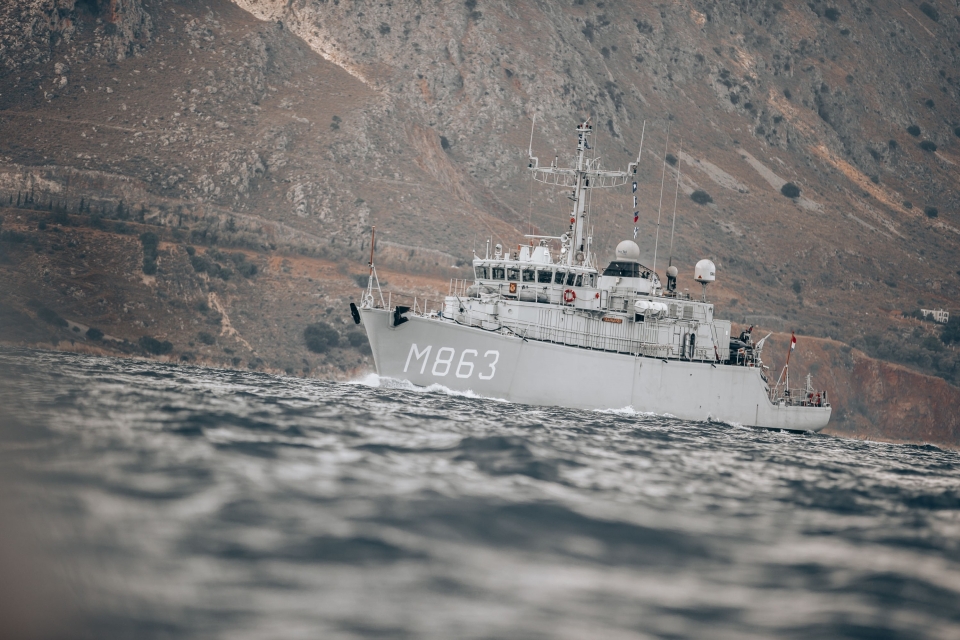The Royal Netherlands Navy defused a World War II plane bomb on 2 May. It was a special operation, because the projectile was located near a pipeline in the Eurogeul. This is the main shipping route to the port of Rotterdam.
To avoid damaging the pipeline, the explosive was first moved, fitted with explosive material by naval divers and detonated.
The job was entrusted to the crew of HNLMS Vlaardingen. This ship has extensive experience in clearing sea mines and aircraft bombs, among other things. For instance, HNLMS Vlaardingen is one of five Dutch minehunters that are part of the Beneficial Cooperation partnership with Belgium. This involves the naval forces of both countries working closely together to keep the North Sea, coastal waters and port estuaries free of explosives. This mainly off the Belgian and Dutch coasts.
Also read: Dutch mine countermeasure vessel Vlaardingen joins NATO fleet in Mediterranean Sea
Hundredth explosive
In the North Sea, it is estimated that there are still thousands of mines, bombs and ammunition residues. Sometimes they end up in fishing nets, with all the associated risks. Such was the case in 2005, when three fishermen were killed after a fished-up explosive exploded on their boat. Since then, the Royal Netherlands Navy has defused more than 1500 projectiles in the North Sea.
As a small footnote, HNLMS Vlaardingen can take credit for some of that. For this ship, the destruction of the bomb in the Eurogeul was the hundredth cleared explosive, since the start of Beneficial Cooperation in 2005.
Also read: Netherlands to provide Ukraine with two minehunters
NATO deployment
HNLMS Vlaardingen will be part of the Standing NATO Mine Countermeasures Group 1 after the summer. This NATO fleet unit specialises in mine countermeasure operations.
Picture: Archive photo of HNLMS Vlaardingen (by the Dutch Ministry of Defence).
Also read: Dutch navy gets twenty new landing craft








